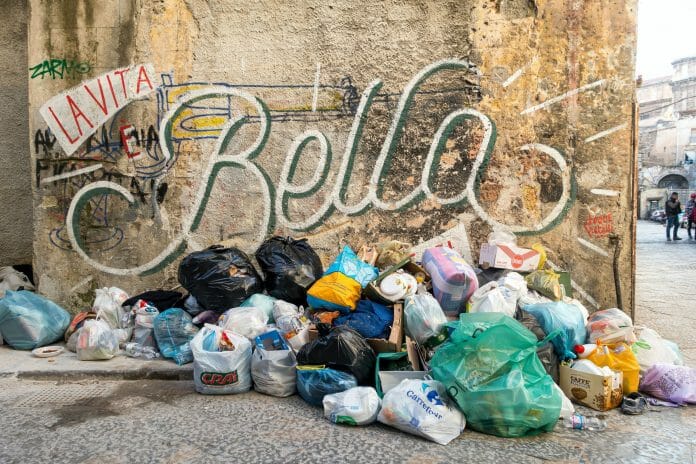By Afifah Suhaimi,
While we are so busy mitigating the spread of Covid-19 pandemic, there is another epidemic that shouldn’t be taken lightly and neglected – the epidemic of waste disposal. And this is actually related to the Covid-19 pandemic.
Waste disposal problems have risen dramatically as a result of the pandemic, with governments facing huge rises in medical waste arising from the heavy usage of disposable masks, gloves, personal protective equipment (PPE) and nasopharyngeal swabs – which are all necessary to combat the infection, but often highly contaminated after every use.
Technically, improper treatment and disposal of medical wastes pose serious hazards of secondary disease transmission.
According to the United Nations Conference on Environment and Development, 5.2 million individuals (including 4 million children) die every year from medical waste-related diseases.
But the Ministry of Health (MOH) assured us that the increased medical waste disposal following the Covid-19 pandemic in this country is still under control, where the process was carried out by the support management at the MOH based on existing guidelines.
However, how about us – the citizens? Are we taking it seriously when it comes to managing our Covid-19’s household wastes?
As reported by the Waste Management Association of Malaysia (WMAM), waste generation in residential areas increased by 20 to 30 per cent since the implementation of the Movement Control Order.
Plus, with the government now mandating the use of face masks in a confined, close-quarter and crowded environment to control the spread of the virus, this obligatory ruling, though sounds like a double-edged sword, as it is now a threat to the community due to the indiscriminate disposable of face masks.
Owing to this, another question emerges as to whether the citizens know how to dispose them properly.
In a random check by the Star, it was found some individuals were unsure if there was a right way to throw away their face masks, and even experts agree that public awareness on proper disposal of face masks is still lacking.
This is worrying, as non-recyclable, or non-reusable masks will end up in rivers or oceans. Aside from posing a health threat to humans this would then lead to trash contamination, which is detrimental to the aquatic ecosystem and species.
Unbeknownst to many, globally, Covid-19 has triggered an estimated use of 129 billion face masks and 65 billion gloves every month. Another interesting yet terrifying fact – if we stitched together all the masks that were already produced and intended to be manufactured, we would have been able to cover the entire land area of Switzerland.
Another problem, which is going to complicate things even more, is the required physical distancing to break the chain of infections which has resulted in a surge of items shipped every day to homes – wrapped in a plethora of packaging – as people turn to online shopping and take-out services.
Indeed, the resultant plastic waste is immense. If we look back in 2016, Malaysia ranked highest among China, Indonesia, Philippines, Thailand, and Vietnam in terms of annual per-capita plastic packaging consumption, at about 16.8 kg per person – making Malaysians the biggest individual consumers of plastic packaging.
In brief, while plastic pollution was already one of the greatest threats to our planet, the rapid boom in the daily use of certain products to keep people safe and stop the disease is making things much more detrimental.
So, while we know that these trends are here to stay for quite some time, what can be done to address this issue?
First things first, the Housing and Local Government Ministry must come out with specific guidance on how and where face masks should be disposed of, so citizens are aware of how to manage this waste.
To gain citizens’ attention, use social media to promote the guidelines – with exciting contents and images, but keep it clean and simple so that the citizens can understand it easily.
Next, a centralised collection system or special bins that come with lids should be installed in residential and office areas as well as the streets to reduce the risks of spreading the infection from used face masks.
In line with this, we need more waste sector workers, to organise and manage this disposal accordingly as well as to handle waste treatment and street cleaning operations.
Besides, citizens should be encouraged to use reusable face masks made from cloth, in compliance with the World Health Organisation’s requirements. The government should also think of making these reusable face masks affordable, to ease citizens’ burden during this unprecedented time.
Last but not least, this is the best time for packaging companies to prioritise more on sustainable packaging for the use of food delivery and online shopping.
For example, packaging material should be made from biodegradable packaging materials like bioplastics, corn foam, paperboard and mushroom-based packaging.
Biodegradable packaging is proving to be not only environmentally friendly, but an excellent marketing advantage – since study shows that consumers are looking forward to going green with packaging nowadays.
Afifah Suhaimi is Research Assistant at EMIR Research, an independent think tank focused on strategic policy recommendations based on rigorous research.









